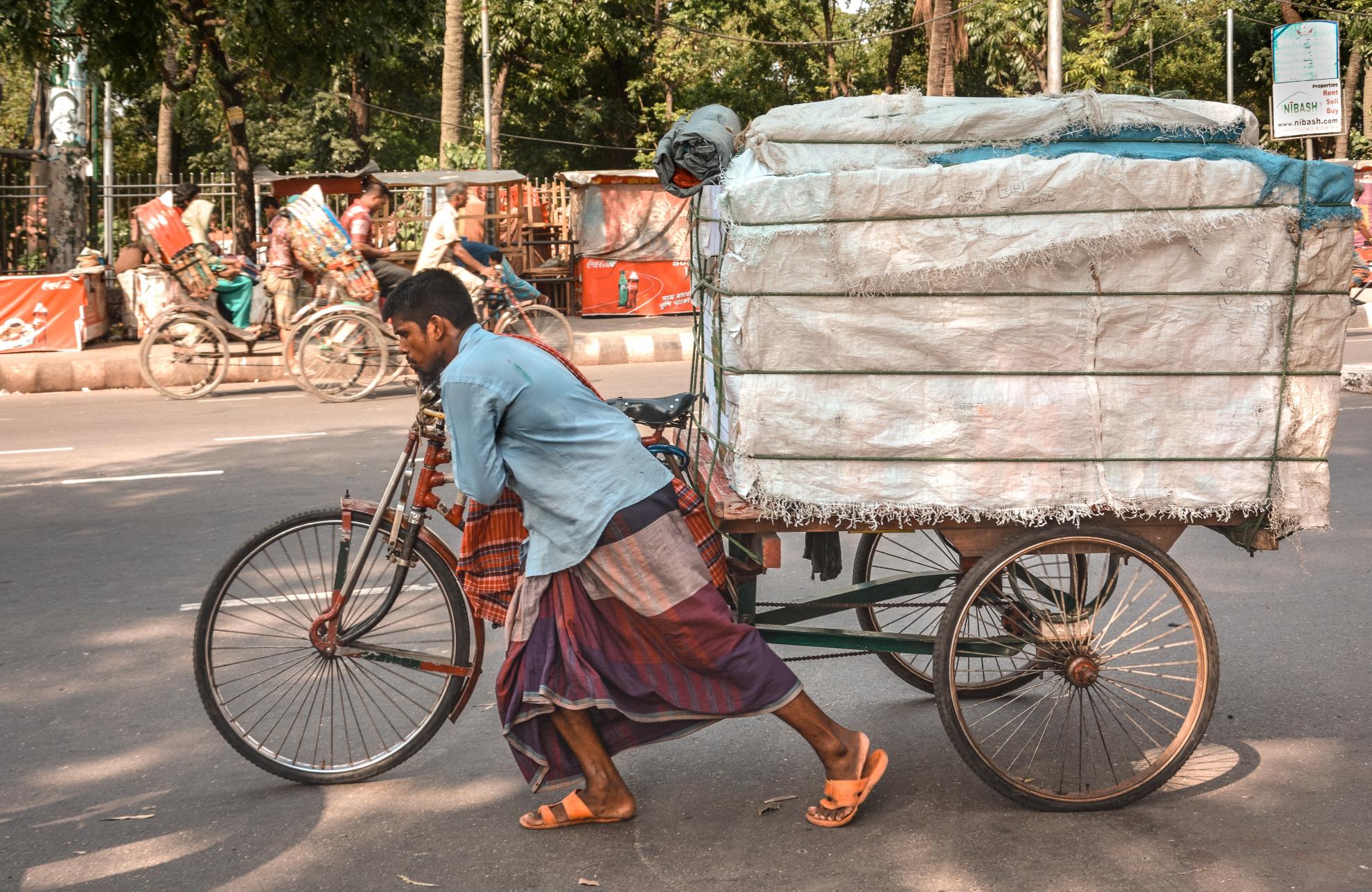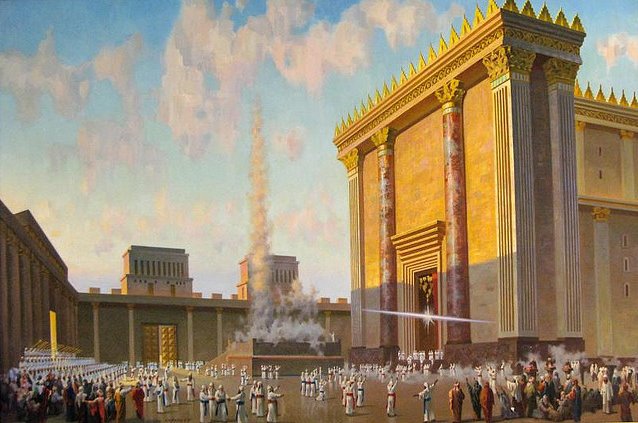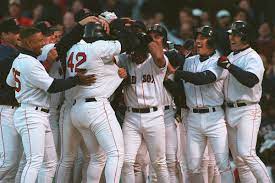July 8, 2024|ב' תמוז ה' אלפים תשפ"ד Korach 5784 - Rav Lachem: Continuing to Fight
Print Article
As Korach and his men launch a rebellion against Moshe and Aharon,
the Torah describes Moshe’s reaction. Instead of debating the rebels, Moshe describes a showdown that
will take place the next day, and he offers instructions:
(ו)
זֹאת עֲשׂוּ קְחוּ לָכֶם מַחְתּוֹת קֹרַח וְכָל עֲדָתוֹ:
(ז) וּתְנוּ בָהֵן אֵשׁ וְשִׂימוּ
עֲלֵיהֶן קְטֹרֶת לִפְנֵי יְקֹוָק מָחָר וְהָיָה הָאִישׁ אֲשֶׁר יִבְחַר יְקֹוָק הוּא
הַקָּדוֹשׁ רַב לָכֶם בְּנֵי לֵוִי:
This is what you should do. Each of you take a fire pan, place fire
in it together with incense, and bring it before Hashem tomorrow, and the one who
Gd chooses is the chosen one. And then, Moshe closes his remarks with an interesting phrase: “Rav Lachem Bnei Levi”.
Rashi says this language of RAV LACHEM, means that you’ve taken up
a BIG FIGHT, attacking HKBH Himself. You’ve
take RAV, a lot, on yourselves. But the gemara in Sota 13b says something fascinating:
א"ר לוי: ברב בישר, ברב בישרוהו; ברב בישר - טרב לכם, ברב בישרוהו
- רב לך.
Says Rebbi Levi – With the
word “Rav” Moshe rebuked/taught a lesson to the Bnei Levi with Korach, and with
the word “Rav” Hashem taught a lesson to Moshe. The gemara is referencing a story that will be told to us later in
Parshas Va’Eschanan, where Moshe davens fervently to HKBH to allow him to enter
the land. And HKBH responds to Moshe:
(ג:כו)
[וַיִּתְעַבֵּר יְקֹוָק בִּי לְמַעַנְכֶם וְלֹא שָׁמַע אֵלָי] וַיֹּאמֶר יְקֹוָק אֵלַי
רַב לָךְ אַל תּוֹסֶף דַּבֵּר אֵלַי עוֹד בַּדָּבָר הַזֶּה:
Hashem said to me “Rav Lach” don’t continue to speak with Me about
this topic!
So, says Rebbi Levi: Just as
Moshe used the language of “Rav Lachem” to the Adas Korach, so, too, HKBH uses
the language of “Rav Lach” with him. And the question is obvious:
What kind of comparison is this!!??
Moshe Rabbeinu is talking about Korach’s men who launched a rebellion
against HKBH’s chosen leaders!? Moshe
was davening on his own behalf to Hashem to enter Eretz Yisrael!? How are they in ANY WAY COMPARABLE?!
Rav Shimon Schwab offers a beautiful
explanation to this question. The simple explanation of what “Rav Lachem” means in the context of
Moshe’s conversation with the rebels of Korach is that he is telling the Bnei Levi,
“why are fighting with me and Aharon?
You ALREADY HAVE SUCH A MEANINGFUL JOB!
You are the Leviim!”
But he also recognized the challenge that comes along with being a
Levi. Because, after all, to be a Kohein
comes not only with a special responsibility but also prestige. You wear
special clothing, Bnei Yisrael are expected to give Kohanim special honor
through the mitzvah of “V’kidashto” that
Kohein gets the first Aliyah, leads the bentching, and most importantly the
Kohanim have the privilege to do the actual Avoda inside the Mishkan itself!
And what does it mean to be a Levi?
It’s actually quite difficult.
When it is time for the people to travel, everyone would go home to pack
up their tents, and the men of Levi had to go tend to the taking down of the
mishkan and carrying the vessels, while their wives and children would take
care of their home on their own. And
then when they arrived, again the Leviim would make sure the Mishkan was all
built again and ready to go.
And then, just as the Mishkan
is built and prepared, and the Levi wants one opportunity to go inside
and actually engage in the Avoda, what happens?
The Kohanim show up and tell them, “That’s OK! We’ll take it from here!”
It’s the ultimate job of significant sacrifice and hard work with
no prestige, no payoff. And it could be
frustrating!
And to this, Moshe Rabbeinu says, I recognize that your job is not
as exciting or prestigious as the job of the Kohanim. I recognize that you put in so much hard work
without much recognition. However, says
Moshe, you have to realized that “Rav Lachem”, you HAVE SO MUCH! Your work is so valuable, even if at times it’s
challenging to see how much it really matters.
And in truth, the FACT that your job comes with less fanfare and
prestige makes it EVEN MORE VALUABLE! It
makes it RAV. Because that work is entirely
L’SHEM SHAMAYIM! It’s being done WITHOUT
ANY ULTERIOR MOTIVES! “Rav Lachem Bnei
Levi!”
And now our gemara makes perfect sense.
Because what does Hashem say to Moshe Rabbeinu 38 years later? He says Moshe you’re not going into Eretz
Yisrael. And Moshe responds, “BUT
HOW!? I’ve spent the last 40 years preparing
the people for this moment!! How can I
not go in!?” And Hashem responds back:
“Rav Lach!” Moshe, you think that just because you won’t be able to
experience the fruits of your labor that it means you haven’t been successful? You have done SO MUCH! And yes, Moshe, even if you don’t get to
enter the land yourself, look what you have ACCOMPLISHED!
And just like you told the Bnei Levi so many years ago, that the
greatest Avoda is when its done l’shem shamayim, just because it’s the right
things to do, even if you never see the full benefit, I’m telling you, Moshe,
that the same is true about all the amazing work you have done, the years of
sacrifice, mesirus nefesh, all you have given up for these people, it is TREMENDOUS,
even if you won’t be able to take that final step yourself. And in fact, it is on an even higher level because
you won’t be able to experience the satisfaction of seeing it all come to
fruition.
On Wednesday morning, a number of the local rabbis had an opportunity
to meet with Rav Yosef Tzvi Rimon. As
many of you know, Rav Rimon has stepped up as a rabbinic leader in Eretz
Yisrael during the war in an extraordinary way.
I cannot even list the number of initiatives he has put together,
besides all of the hours he spends daily visiting soldiers on bases, the
injured soldiers in hospitals, supporting bereaved families, and answering the
most difficult questions we can imagine.
So, as we met with him on Wednesday, he asked if we have anything
we’d like to discuss with him. So, I asked
him if he had any advice for us, the rabbis, and for our community in general. I described how over the past almost 9 months
we have all been working on overdrive, both the rabbanim and our members,
visiting Israel, raising money, davening, learning, running programs, etc.
trying to stay connected to all that has been going on, and then we are
starting to all feel FATIGUED. How do we
keep it up?
Now, I was almost EMBARASSED to ask the question because, of
course, as challenging as this time has been for us, it has been that much more
challenging for the soldiers, their families, the hostages and their families,
and what does it even mean for us to complain?
Yet, I wasn’t complaining. I
was just describing the reality of the challenge that remains in front of us,
as Diaspora Jews, which is an altogether different reality, and which must also
be addressed.
Rav Rimon heard the question, and he responded with more than I can
say in the next few minutes, but I’ll share a few points:
1)
“Yes,
it’s hard to keep it up, for all of us, but we have no choice! He told the story of a commander who is in charge
of 1,000 soldiers and who has been in reserve duty for months with very few
breaks who told him, “I am not so afraid of an RPG being fired at me in Gaza. I’m much more afraid of having to call my
wife and telling her I’m not going to be home again for Shabbos.”
He said that unfortunately, even as fighting may wind down somewhat
in Gaza, it is unlikely to calm down much in the north and is likely to
intensify. So, if we feel tired, we should
remember that so many of our chayalim are not getting a break, so we need to be
ready to keep fighting for them.
2)
He
described the incredible work the soldiers are doing each day to prevent future
attacks on Israelis, and how every day even as there is the pain of soldiers
who are killed, there is tremendous success happening from a military
perspective.
3)
And
at the end, he said something very meaningful that we all know but was still
powerful to hear from Rav Rimon himself.
He said the people of Israel continue to be strengthened so much by our
support. Whether that is funding, tefillos,
activism, and visits. It matters so much
to them, and he feels that what we have done to this point has been amazing.
And I was thinking afterwards, that perhaps part of the challenge
for us is that we are sort of like the Bnei Levi. We are so far away, and we have been working
tirelessly for Am Yisrael, but we don’t get to see the fruit of our labor.
-
We
daven and we don’t know the IMPACT of those tefillos.
-
We
send funds to help soldiers on the front lines, in recovery, and their
families, but we don’t see how it is helping them.
And what Rav Rimon was telling us at the end of the meeting was “RAV
LACHEM”. I know it’s hard to see the
impact, and that makes it easy to start to fade in our commitment. But we must know that:
1)
The
need is still there.
2)
The
impact we can each make remains RAV!
Of course, we need to continue to pace ourselves and not burn out,
but we also need to recommit ourselves to continuing to push forward in our
support for Am Yisrael in Eretz Yisrael.
1)
Next
Bergen County Mission:
There is a new mission being sent from Bergen County from August
5-8 to continue to cultivate our connection with the people of Kerem
Shalom. There will be more opportunities
to volunteer, meet with families, to give chizuk and receive it. More details will follow after Shabbos.
2)
Kerem
Shalom: When
we asked him what he feels are some of the most pressing needs, Rav Rimon said
getting families back home, and in Bergen County that means helping to bring
the people of Kerem Shalom back to their kibbutz soon. We have committed to raise $50,000 for this
project, and we have raised close to $20,000, but we definitely are looking for
more families to step up and make a contribution.
3)
Our Tefillos: Rav Rimon felt strongly that our daily tefillos should include a
specific tefillah for the chayalim every day.
In addition, I think we are all feeling that the same Tehillim every day
can sometimes lose its impact.
Therefore, going forward we will be shifting the Tehillim we are saying,
and we will insert the mishebeirach for the chayalim every day at shachris and
mincha-maariv.
One of the reasons it is so challenging for those of us not in
Eretz Yisrael to keep up our part in the war effort is because it’s hard to see
the impact of that effort. So, comes
Moshe Rabbeinu to remind us, “RAV LACH”, don’t be dissuaded by the challenge of
seeing the fruits of your labor, know that what we are doing is RAV, it is so
meaningful.
May the mesiras nefesh, the sacrifice, we continue to make on
behalf of Acheinu Bnei Yisrael continue to bring us one step closer to victory
over our enemies, the return of all the hostages, and a time of peace and calm
for Am Yisrael very soon.




